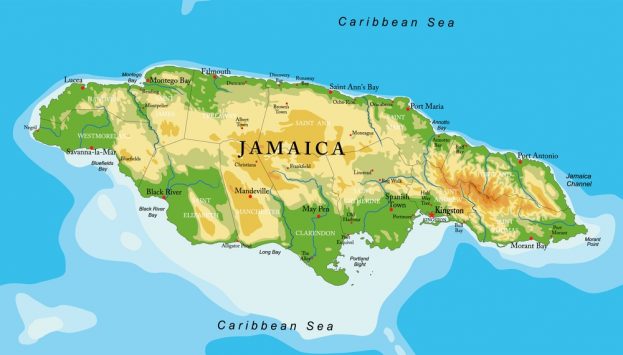 Currently, the Government of Jamaica (GOJ) is trying to push through ‘The Integrity Commission Bill.’ As of July 21, 2017, it was headed to the House of Representatives for final review. In the eyes of a diversity of civil society actors — feminist activists, human rights defenders, social justice activists, members of the private sector, and others — the Bill falls short of the standard that would make for an effective legislation resulting in the stamping out of corruption.
Currently, the Government of Jamaica (GOJ) is trying to push through ‘The Integrity Commission Bill.’ As of July 21, 2017, it was headed to the House of Representatives for final review. In the eyes of a diversity of civil society actors — feminist activists, human rights defenders, social justice activists, members of the private sector, and others — the Bill falls short of the standard that would make for an effective legislation resulting in the stamping out of corruption.
A ‘non-scientific rapid poll’ of members of some community-based groups indicates that almost all asked were unaware that such a Bill had even gone to, let alone passed through the Senate. This leads to the first question: As a government committed to ‘good governance’, what kind of public education and awareness campaign did the GOJ mount?
Given the daily cry of “too much corruption”, arguably if every MP called a meeting in his/her constituency about corruption, a visitor would be forgiven for mistaking the size and the energy of the gathering for that of a religious meeting. As Jamaicans, we are prone to defining every occurrence ‘corruption’!
What is corruption really and why should this key provision in The Integrity Commission Bill be of such great concern to all of us?
Most Jamaicans know what Transparency International (TI) is. For some it is that annoying group that claims Jamaica is corrupt. For others, it is an organization that can be relied on to let countries/governments know how they are perceived by their own business people, academic, and other civil society leaders in terms of honest, transparent, organized, fair and equitable systems.
As much as we may want to label whole governments, groups of people, or a whole institution as corrupt, there is actually a working definition of corruption: “The abuse or misuse of power or trust for personal benefit or private gain.” It is the perception of corruption that T.I. measures on its Corruption Perception Index (CPI). The key is the frequency with which people experience occurrences of corruption. If all or most business people report that every time they access government agencies for services, and all provided in the manner promised, then the country will most likely to be scored ‘clean’ or gain a score of close to or 100%. Alternatively, if everyone reports they get poor or no service, or they must pay a bribe for the service, then the score is zero or close.
Currently, Jamaica’s score last reported was about 68. Corruption takes a number of forms that we hear about or may even encounter: bribery; theft; embezzlement; extortion; nepotism or favouritism (includes not only giving family and relatives preferred access, but favouring persons in our social networks, eg school alumni, political circle, church. The final category is ‘undue influence’ — this lwe may know as trying to buy political influence/power through campaign financing as one example.
The deep concern by various civil society actors hinges on the most critical plank or principle in building integrity and fighting corruption — transparency. Secrecy or a lack of transparency cannot co-exist in an Integrity / Anti-Corruption Commission. A Clause in the Bill, 50 (2) C, essentially flies in the face of this principle. It undermines or cuts out the very heart of an anti-corruption or pro-integrity law. The proposed law denies access by the would-be ‘head’ of the commission/investigator to information, bar him/her from enquiries and from reporting on the issue to Parliament.
In its 2014 report on defence spending, T.I. reported the following:
“Defence and security institutions consume a huge proportion of public spending …[reaching] US$1.776bn… 2.3% of global GDP. The vast amounts of money… with highly secretive (often unjustified) and centralised decision making, expose this sector to significant corruption risks…the financial cost of corruption in the defence sector is, minimum, US$20bn a year.”
The World Bank, T.I. and the United Nations point out that this theft of national budgets impacts investments, especially in “health, education and infrastructure.” Security and defence are areas with the highest costs to development caused by corruption in both developed and developing countries.
For example, members of the police force in one developed state sold guns on the ‘black market.’ A government official was imprisoned in another instance for purchasing defective bullets and ‘flack’ jackets. Instead of an open bidding process he purchased them through a friend in his church group. It cost that country 6 lives of members of the security forces before changes were made.
It is estimated that at least 20-25% of public contracts globally are lost to corruption. The usual benefactors are: public officials, public sector workers, politicians, and businesses.
But who loses and suffers the most?
Kofi Annan, in the foreword of the UN Convention Against Corruption adopted in 2003, states: “Corruption is an insidious plague that has a wide range of corrosive effects on societies” including threatening our democracy, human rights, our quality of life. Jamaica ratified the Convention in 2008.
The new 2030 Global Development Agenda of 17 Sustainable Development Goals (SDG) offers these facts about corruption under SDG 16:
- The judiciary and the police are among the most affected by/ are vulnerable to corruption
- Corruption, bribery, theft and tax evasion cost some US$1.26 trillion in developing countries per year; this could fund or be available to take people [out of poverty] making US$1.25 or less a day above that for at least six years
Yet that is not all.
The UN, the World Bank, the OECD and Transparency International all agree that it is the majority of the poor — people with the least access to resources e.g. money and land, and people with the least access to political power and other spheres of decision-making in both the public and the private sectors — who make up the vast majority of those negatively impacted by corruption. Globally, the majority (70%) who make up this group are women and girls.
In agreeing the SDGs, governments concluded that there exists a glaring and growing global gender gap in terms of equality and equity between women and men. Additionally, the UN is extremely clear that the eradication of poverty and the achievement of women’s equality are “mutually reinforcing” — these two issues are inextricably linked. They must be dealt with together.
Researchers and experts on corruption have investigated the likelihood for one sex to be more corrupt than the other. While that debate rages some things are unquestioned:
- women are much more likely to be victims of corruption linked to their lack of resources, including unequal access to political power;
- the lack of resources means most women must access public services, making them vulnerable again through petty corruption- payment for ‘free’ public services;
Finally, anti-corruption experts are increasingly concerned about the steadily rising trend in a form of corruption known as sex extortion or ’sextortion’ that involves exacting bribes or ‘payments for services’ such as: utilities; access to social, education and health services; land access and ownership; agricultural subsidies and extension programmes; affordable business loans; jobs etc.
Globally, this is perpetuated almost always against women and girls. This is the gendered under-belly of corruption.
Women and girls are not protected from this. The increasing frequency, say advocates, makes it almost a “norm” in the way business is conducted in both the private and the public sectors in many countries. A new working definition of corruption is needed, say many including the OECD’s Integrity Forum, and associations of female judges in several countries. This definition, they contend, must recognize the fact that the majority of the victims of corruption are women and girls and as such develop gender-responsive processes and solutions to deal with this fact.
The gender wage gap, lack of child and elder care, lack of anti-violence services, and lack of women-focused economic empowerment strategies exacerbate women’s situation. The lack of gender-aware national budgets also condemns women to a life of inequality and inequity. Jamaica, is one such country with what is termed a “gender dunce” budget — totally lacking an effective gender analysis in spending towards the development of women, men, girls and boys.
Let us not compound things by creating a situation that feeds women’s and girls’ inequality. Without clear national strategies and fair and open processes with accountable, effective and independent oversight mechanisms, we are almost guaranteed deeper underdevelopment and the widening of our gender gaps.
Women and girls should not be made to continue to pay the price of corruption. Delete Clause 50 (2) C of the Integrity Commission Bill. Tre Madden Womens Jersey



